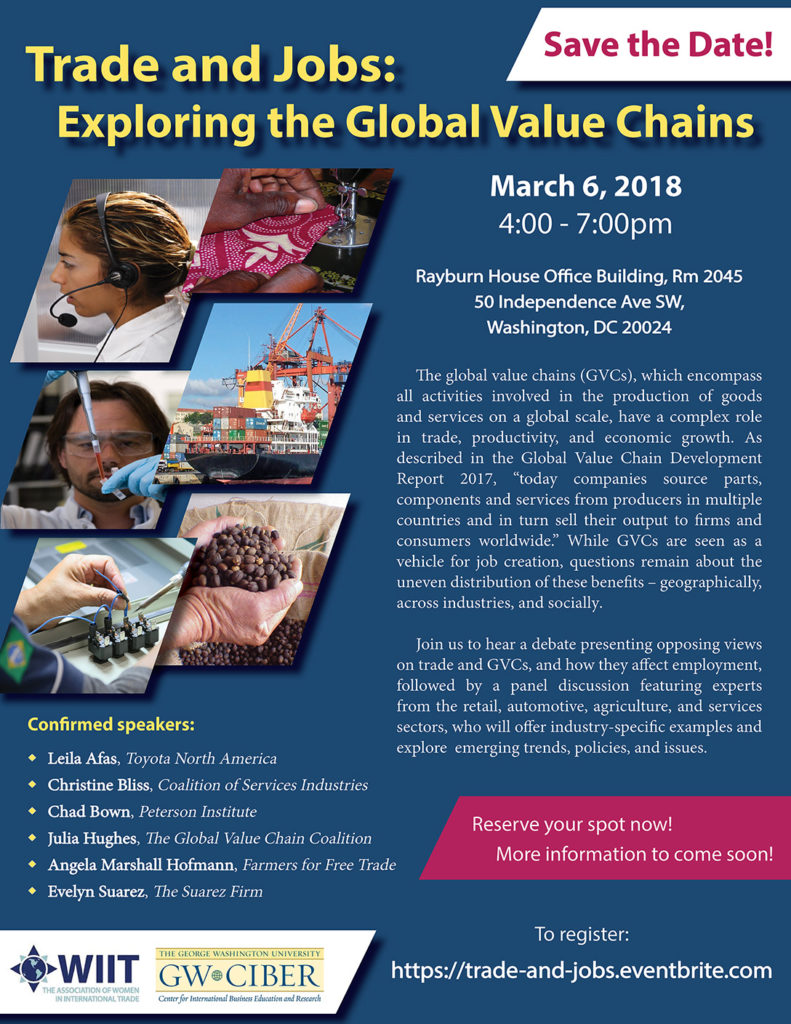Evelyn Suarez will be speaking at the upcoming Trade and Jobs: Exploring the Global Value Chains event on March 6, 2018, in Washington DC.
The global value chains (GVCs), which encompass all activities involved in the production of goods and services on a global scale, have a complex role in trade, productivity, and economic growth. As described in the Global Value Chain Development Report 2017, “today companies source parts, components and services from producers in multiple countries and in turn sell their output to firms and consumers worldwide.” While GVCs are seen as a vehicle for job creation, questions remain about the uneven distribution of these benefits – geographically, across industries, and socially.
Join us to hear a debate presenting opposing views on trade and GVCs, and how they affect employment, followed by a panel discussion featuring experts from the retail, automotive, agriculture, and services sectors, who will offer industry-specific examples and explore emerging trends, policies, and issues.



